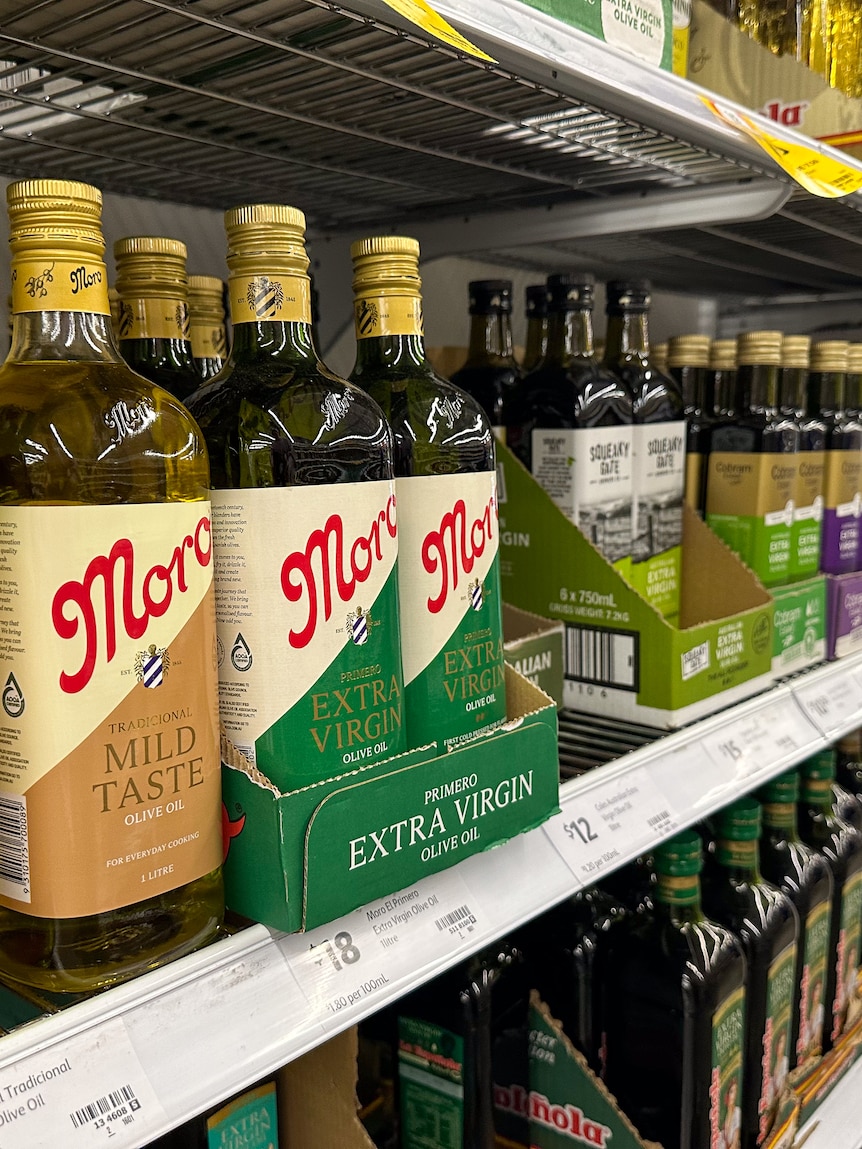Australian olive oil producers say domestic demand is skyrocketing as international prices for the product reach record highs.
Key points:
- Australian olive oil has become more competitive in the market
- Consumers are spending more on olive oil despite a modest decline in sales
- Record high international olive oil prices have increased imported oil costs
Now more competitively priced, home-grown olive oil has been able to grow its market share, according to Australian Olive Association chief executive Michael Southan.
“People who buy the Australian product value the origin of extra-virgin olive oil, they’re happy to pay a premium,” he said.
“What we have seen now is the lower price imports have come up to be equivalent in price or even more than the Australian product, so we are actually seeing a bit of a switch.
“People are saying, ‘Well if I am paying the same price why wouldn’t I buy the Australian product’.”
Consumption down, spending up
The olive association said the positive trend came despite a decrease in overall olive oil sales nationally of three to five per cent, mostly of non-extra virgin olive oil varieties.
But because of the increase in oil costs, Australians’ spending on olive oil is up.
“It is not having an adverse impact on the Australian product,” Mr Southan said.
“If anything, there has been a slight decrease in overall consumption, some people are choosing not to buy olive oil … but what we’ve seen is because prices have gone up, the overall value has increased in terms of what people are buying.
“It is a really positive position for the industry at the moment.”
Trend speeds up
The consumer move toward Australian olive oil has been part of a long-term trend, but recent conditions have strengthened that movement.
“It is an ongoing trend, but it’s certainly quite noticeable this year,” Mr Southan said.
Sam Beaton, the joint-chief executive of Australia’s largest olive oil producer Cobram Estate Olives, said the business had been very busy in recent months.
“Naturally we have seen a stronger demand now from customers,” Mr Beaton said.
“We are absolutely benefiting from this environment … we are delighted by the support we are getting from Australian consumers.”
Buying in bulk
Similarly, South Australia’s Pendleton Olive Estate has observed a noticeable difference in demand in recent months.
“We have seen an increase pretty much across all our products in all the sectors,” Pendleton Olive executive director Nick Whiting said.
The business sells its olive oil in Australian supermarkets, to restaurants and cafes, as well as exporting into South East Asia.
“Inquiries have been substantially increased, certainly sales have been a little bit up,” Mr Whiting said.
“More people [have been] inquiring about trying to buy bigger 20 litre type products than we would normally see as well.”
He said the Australian market was not the only one that had improved.
“Certainly, some of the overseas markets are looking for quality product and having to look a little bit further than their traditional markets,” he said.
New customers
Mr Whiting said he hoped the trend of buying Australian olive oil would continue.
“Australian products only really compete by being high quality,” he said.
“Once people do consume it, they realise that there’s a bit more to it than probably your average product.”
Key stories of the day for Australian primary producers, delivered each weekday afternoon.




